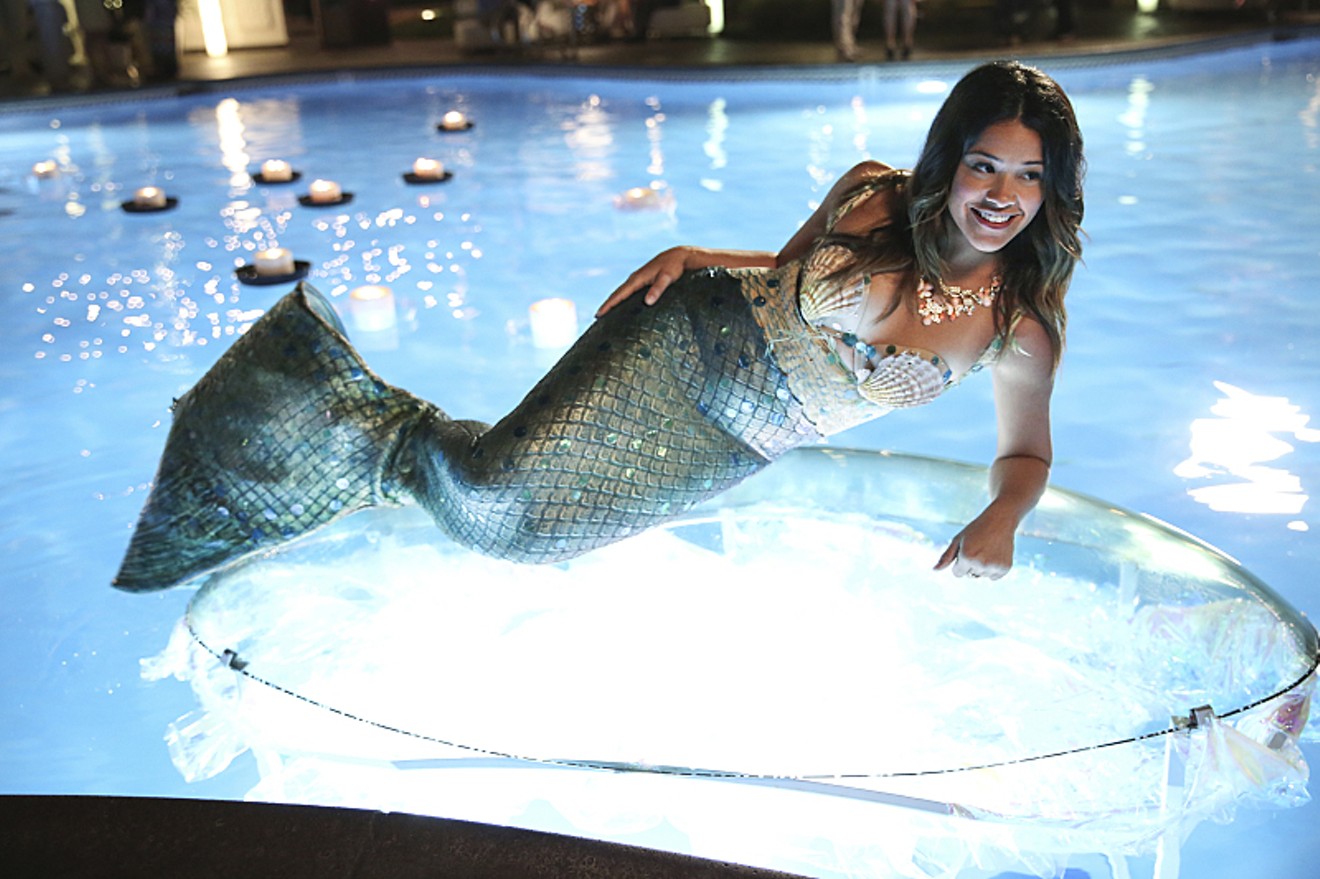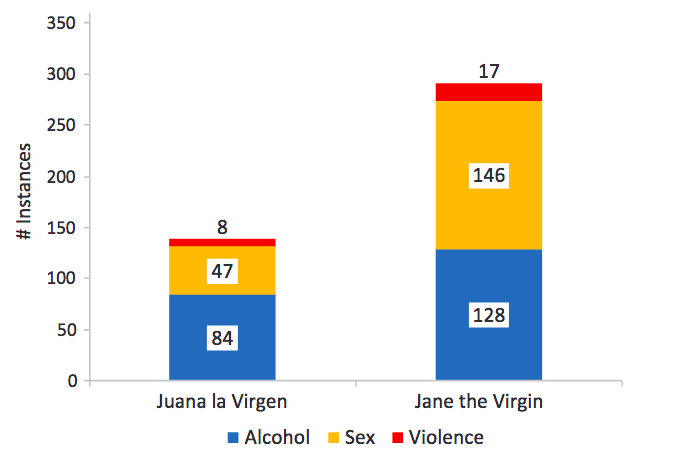But the show's success may be due to an increase of sex, violence, and alcohol consumption in the American adaptation, according to a new pilot study from the Annenberg Public Policy Center at the University of Pennsylvania. Jane the Virgin has three times as much sexual content and twice as many violent incidents as Juana la Virgen.
"The CW Network has aimed its programming at younger audiences, and in Jane, it has one of the only young female Hispanic protagonists on television," says Darien Perez Ryan, who
Analyzing ten episodes of Jane and ten of Juana, researchers tested their hypothesis that the show is part of a "culture of corruption" — basically, that English-language adaptations of telenovelas are injected with more sex, booze, and fight scenes to satisfy American viewers.
The study found that Jane had 128 instances of alcohol consumption, compared to 84 in Juana. The American version of the series had 17 instances of violence, nine more than the telenovela. And Jane depicted 146 instances of sexual behavior, while Juana had just 47. (The report also notes that neither version of the show portrayed anything about safe sex practices, perhaps the most troubling part of the study.)
The researchers note that the increase in sex, alcohol, and violence in the CW adaptation is likely due to plot changes from the Spanish-language version. Both shows are based on the main character's surprise pregnancy after she is mistakenly inseminated during a doctor's appointment. In the telenovela, however, Juana is a 17-year-old high school soccer player, while Jane is a 24-year-old college student.
"You might say, Jane is of age, so she can handle alcohol — so why is that a problem?" Ryan says. "It’s not a problem for the character onscreen. It’s a problem for the adolescent it’s being modeled
Ryan and Jamieson write in the report that the American show could be problematic for younger Hispanic teens, who make up a significant portion of the audience.
"Television programming that depicts alcohol consumption may promote an increase in drinking by the target audience," the report says. "Importantly, the National Institute on Alcohol Abuse and Alcoholism recognizes acculturation as a major factor in predicting drinking patterns in the U.S. Hispanic community; this acculturation includes exposure to Americanized media."
Despite the increase in risky activity, Jane the Virgin does model some healthy behaviors, the researchers concede. When Jane becomes pregnant, for example, she reaches out to family and friends for support and regularly attends doctor's appointments, whereas Juana runs away from home and is not shown to receive any prenatal care.
"Although there were some positive health portrayals in Jane the Virgin, this study found more problematic health content in the program than in the original telenovela from which it was
The fifth and final season of Jane the Virgin premieres March 27 on the CW.













